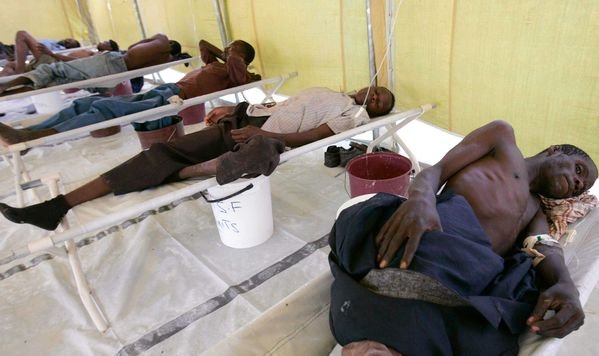Some cholera patients at the Korle Bu Polyclinic after going through initial treatment take advantage of the influx of patients to the hospital to abscond.
As at Thursday, August 28, 2014, the hospital had recorded eight cases of cholera patients absconding, which the acting head of the polyclinic, Dr Gerhard Ofori-Amankwah, described as a disturbing development.
Speaking in an interview, he said “those who are absconding may be absconding for reasons best known to themselves but they will have health implications”.
“We have people who have gone and come back in a worse state; in some cases they are brought in dead. So if you have not been totally managed please do not abscond,” he appealed.
He said some had the wrong impression that cholera could be managed by simple rehydration, “but it is not the rehydration that comes by simply drinking water as and when, it has to be a monitored rehydration”.
He reminded patients that they would be doing themselves no good by leaving the hospital while being managed only to return in a worst state.
Dr Ofori-Amankwah assured the public that cholera treatment was free, even though in some cases where a facility ran out of essentials such as ORS and some drugs the patients needed immediately, relatives might be given prescription to buy outside.
Number of cases
As of Monday, August 25, 2014, the hospital had recorded 1,154 cholera cases since the first case was reported about 10 weeks ago, with 13 deaths.
The hospital is overwhelmed with the numbers brought in daily that it has to recall nurses on leave to help manage the situation.
The facility is inundated with cholera patients such that plastic chairs, wheelchairs and benches are being used as improvised hospital beds for cholera patients.
Not even an abundant car park has been spared as a male cholera bay.
Mobile toilets
He said the hospital needed mobile toilet facilities exclusively for the cholera patients to ensure that they did not mingle with others.
“With the mobile toilet, we can just mount them on the platform by the bay so that the patients do not have to walk to the main building to have access to a toilet facility,” he explained.
















